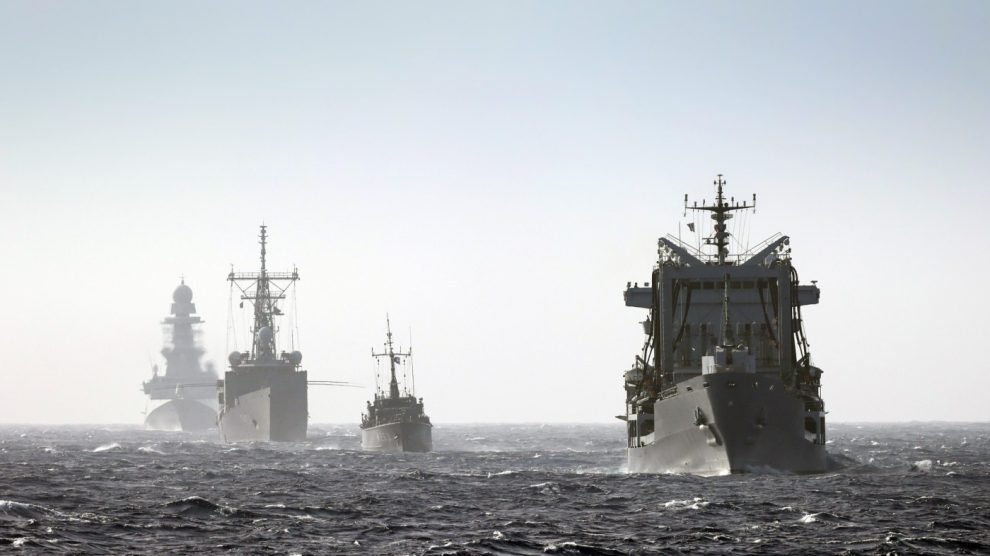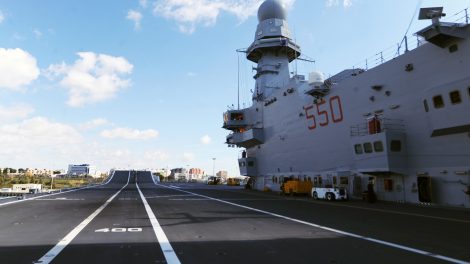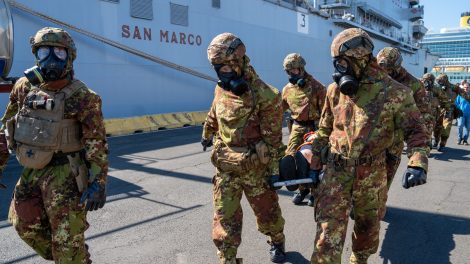NATO warships take part in Med exercises. Over the past days, seven Allied warships from four countries – Italy, Turkey, the United Kingdom and the United States – carried out a joint de-mining drill in Mediterranean waters. A simulated minefield was set up across a narrow maritime chokepoint, representing a short route between two important destinations, and two NATO Groups – Standing Maritime Group 2 and Standing Mine Countermeasures Group 2 – set out to secure the area.
Participating naval assets featured minehunters, including Turkey’s TCG Erdek as well as Italy’s ITS Stromboli and ITS Viareggio. The UK’s flagship HMS Duncan led the operation, flanked by TCG Gokceada, ITS Carabiniere, and the US’ USS Ramage destroyer.
- The latters provided protection against simulated air and missile attacks, using long and short-range anti-aircraft systems, while fast attack crafts were countered using close-range weaponry.
Focus on supply routes. “Both the world economy and our daily existence are utterly reliant on merchant shipping,” remarked Royal Navy Commodore Paul Stroude, Commander of the Standing Mine Countermeasures Group 2. “It is vital that we are able to keep these strategic routes open [so that] merchant vessels can pass through them safely.”
- The implication is clear, UK Defence Journal wrote: “NATO is keenly aware of the risk of adversaries using sea mines or coastal forces to block these crucial shipping routes, and is ensuring its forces are prepared.”
Timing matters. The Alliance carried out this exercise as Russia’s exit from the United Nations Grain Initiative and blockade in the Black Sea is hindering key supply routes and endangering food security (and thus social stability) across the enlarged Mediterranean.
- The recent coup in Niger and the ensuing deterioration of stability in the Sahel are compounding the stress over the area, which has demonstrated its susceptibility to exogenous factors in recent history.
It’s time to (really) mind the Southern Flank. Italy has successfully pleaded with NATO to keep a closer watch on the enlarged Mediterranean, touting the need to address the root economic issues to mitigate instability and the knock-on effects on Europe, such as migration. While at the Vilnius Summit, Allies agreed to draw up a Southern Flank strategy by the time they convene in 2024.
- Recently, while Prime Minister Giorgia Meloni was in Washington, United States President Joe Biden welcomed the establishment of the Rome Process to promote partnerships between countries of origin, transit, and destination of migration in the region.
- The US also “[took] note” of the Italian government’s Mattei Plan, set to be unveiled in October, which will lay out Rome’s stability-fostering efforts in Africa.
Image: NATO Maritime Command




